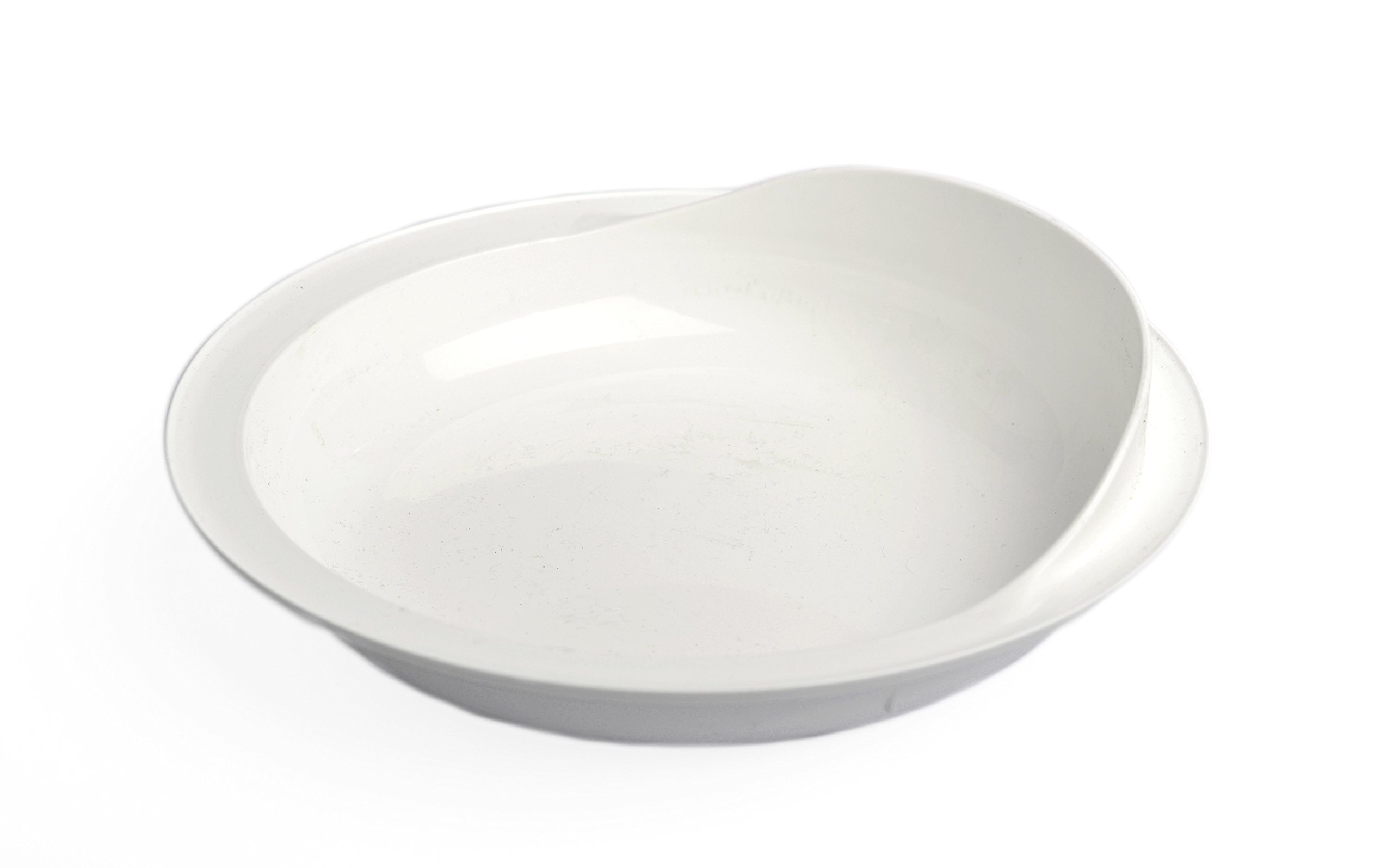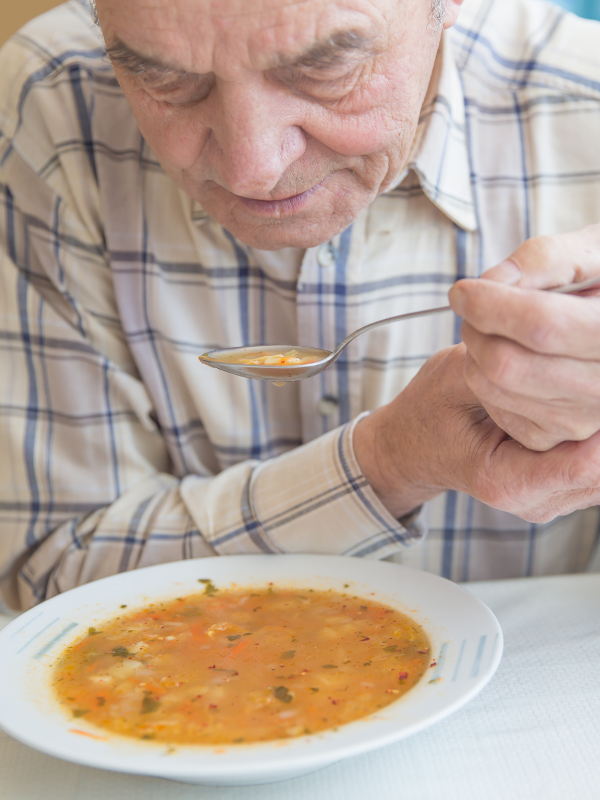
Maddak Scooper Eating Plate



Supportive Utensils – This set of adaptive kitchen utensils for adults are wider with a non-weighted design to support those with hand tremors, Parkinson’s, or arthritis.
Wide, Non-Slip Grip – Each of our non-weighted adaptive utensils features a wider ribbed handle with raised, textured grips to improve dexterity and control.
Stainless-Steel Durability – Along with a food-grade safe silicone handle, each kitchen fork, spoon and knife is made with dishwasher safe stainless steel.

Steady spoon electronically stabilizes so the attached utensil shakes 85% less than your hand.

More than one-third of Americans have prediabetes, but 90 percent of them don’t know they have it, medical experts say.

Understanding variations among obesity subtypes may help physicians do a better job of predicting bariatric surgery outcomes, researchers reported. Researchers identified four separate classes of obesity.
Source: Bariatric Surgery Outcomes Vary According to Obesity Subtype

Too much sitting is bad for your health. Check out this list of ideas to help you be less sedentary at home and at work.
Source: How to Stop Sitting So Much | Food & Nutrition | Stone Soup

The American Medical Association (AMA) is urging the U.S. Food and Drug Administration (FDA) to ramp up labeling of high-sugar foods.
Source: U.S. physicians urge FDA to bolster labeling on high-sugar foods

Watch 10-, 15-, 20-, and 60-minute exercise videos for older adults from Go4Life.
Source: Go4Life Workout Videos | Go4Life

Adults who maintain weight loss have more consistent weekly patterns of physical activity and are active earlier in the day compared with other groups, according to data presented at the ObesityWeek annual meeting. “Clinicians should be promoting daily physical activity for almost everyone . . . Physical activity is particularly important for individuals who are trying to manage their body weight. Clinicians could use this information to inform their recommendations.”
Source: Morning physical activity more common among adults who maintain weight loss

A new interventional treatment for obesity that is currently in clinical trials raises some concerns because it leads to loss of muscle as well as fat.

People tend to over-indulge, and it’s estimated the average person consumes around 3,000 calories on a special day. For many people, that can be two days worth of calories in one. So let’s think this out ahead of time, have a game plan and stick to it. Acknowledge that some forms of eating are more hazardous than others
Source: Ask the dietitian: Avoid gaining weight over the holidays

It’s pretty up in the air as to what the “healthiest” cooking oil is at the moment – coconut, avocado or olive? – but we know those three top the list.
Source: FDA approves cardiovascular health claim for certain cooking oils

A new study found that intermittent fasting is no more effective than the average diet.
Source: Intermittent Fasting Is No More Effective Than a Regular Diet, Study Says

Hospitals lure diabetes patients with self-management classes, but the education can come with a high price tag.
Source: Diabetes Self-Care Courses Can Come With Sticker Shock

Everyone can benefit from good nutrition and proper eating
habits. For people with HD, good nutrition has been proven to be
an important part of maintaining health and maximum functional ability. The purpose of this guide
is to combine current dietary guidance for all people – such as reduction of calories, avoidance of trans fats, increased consumption of fruits, vegetables, and whole grains – with information about the special issues that affect nutrition in persons with HD and strategies to address these issues.
Source: Nutrition and Huntington’s Disease: A Guide for Families

Taxing sweet snacks such as cookies and candy could have a greater impact on public health than taxes on soda and other sugary drinks, according to a large study of consumer behavior in England.

Two new studies highlight the negative impact of depression on the health outcomes and health-related quality of life of people with cardiovascular disease, while new research has found that undiagnosed depression can significantly affect the lives of those who had a heart attack.

Eating lots of vegetables may help older women keep their blood vessels healthy, Australian researchers report.

Further clinical trials are needed to explore the potential beneficial effect of vitamin D supplementation, via fortified foods and/or dietary supplements, on insulin resistance, and possibly on weight management.

Compared to standard insulin treatment, noninsulin antidiabetic agents did not present an increased risk for fetal losses or major malformations when used in the first trimester of pregnancy.
Original Article: Risk for Fetal Loss Early in Pregnancy Not Greater With Noninsulin vs Insulin Therapy